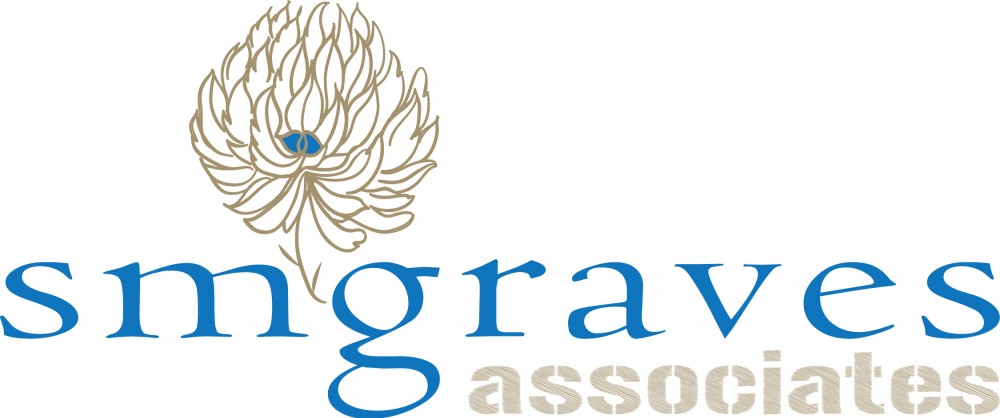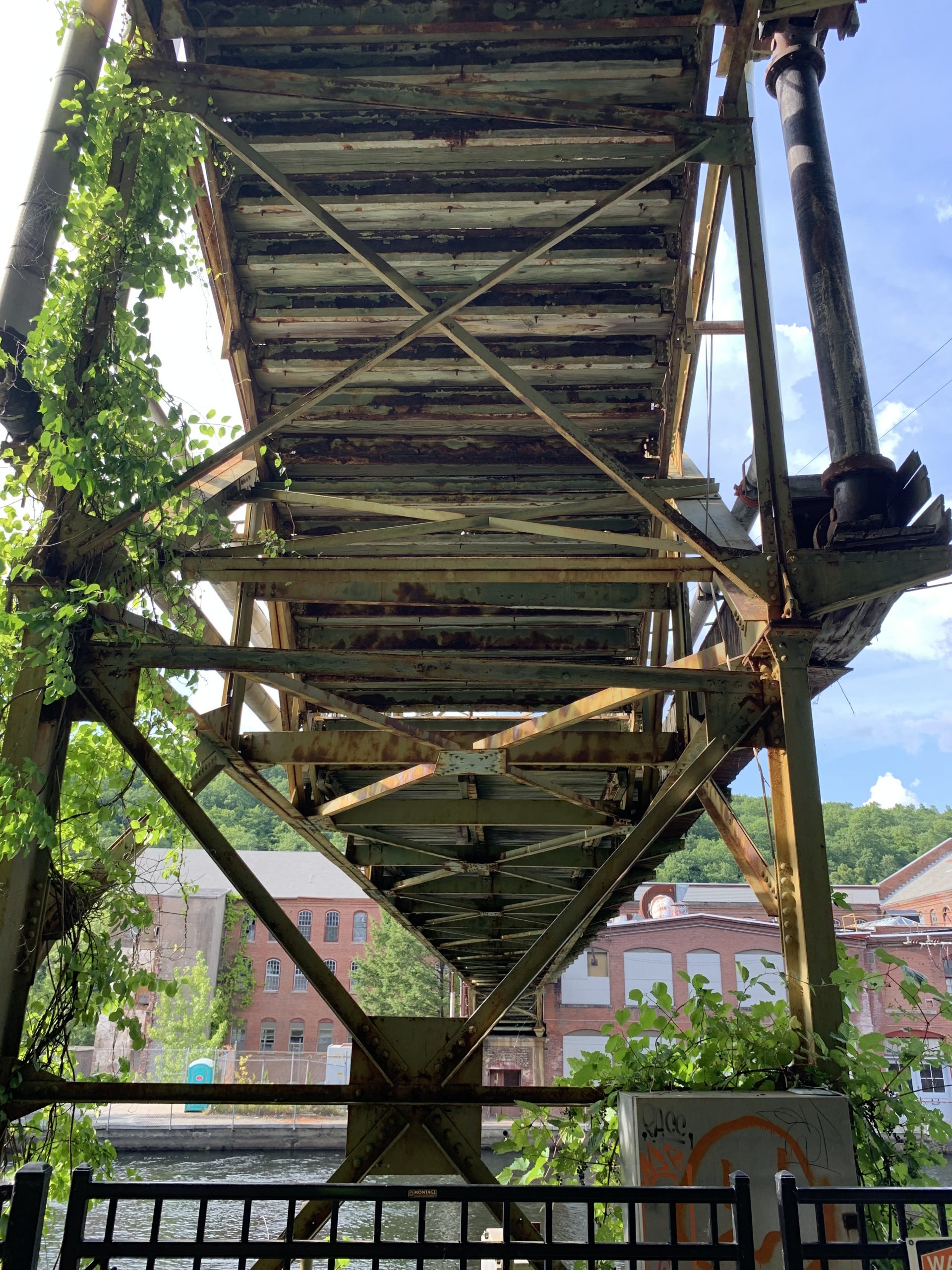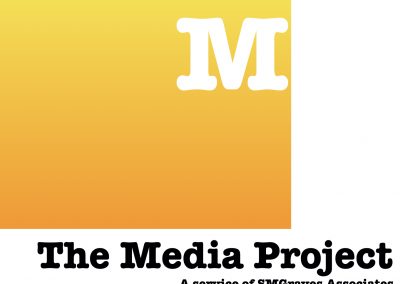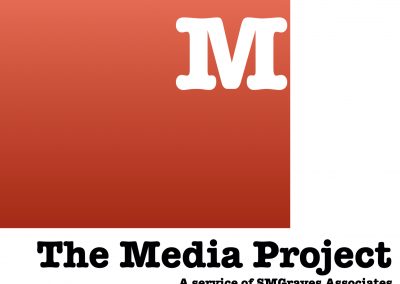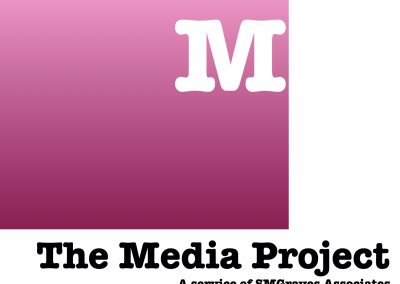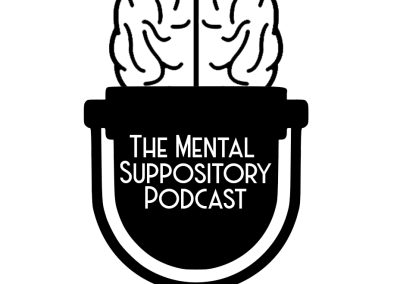Affordable Manufacturing Space Is an Engine for Equitable Economic Development
Photo credit: M the Media Project

Soon after the COVID-19 lockdown hit Pittsburgh, local backpack company Day Owl shifted from making backpacks to manufacturing face shields. The company did so at its 6,000-square-foot light manufacturing space inside 7800 Susquehanna Street, a hub for manufacturing, makers, small businesses, nonprofits and job training.
As Day Owl shifted operations, they also tapped into the resources at 7800 Susquehanna. Bridgeway Capital, the nonprofit that owns and operates the building, connected Day Owl with engineers, laser cutters and die cutters, resulting in the creation of 17 jobs. “Within a month we were manufacturing two to five thousand face shields a week, for the next three months,” says Sam Klein, Day Owl’s chief of operations.
It’s the kind of collaboration Bridgeway Capital envisioned when it opened 7800 Susquehanna Street in 2014 not just as an affordable manufacturing space but a community asset for the tenants and surrounding neighborhood of Homewood. Since opening, the building hit 100 percent capacity with 23 tenants — none of whom lost their leases during the pandemic — with businesses creating 97 full-time jobs.
The building is an example of how urban manufacturing can be an engine for equitable economic development, according to a report by the Urban Manufacturing Alliance. The report, which offers policy recommendations for the federal government in supporting urban manufacturing, highlights the need to modernize industrial real estate and create community assets — while also outlining challenges that current mission-driven developers face in transforming industrial real estate for marginalized communities.
For Bridgeway Capital, a Pittsburgh-area nonprofit and community development financial institution founded in 1990, its first foray into industrial real estate has had real impact. The project, according to development director Dawn Seckler, “was a really big shift for Bridgeway, and an important one.” It resulted in internal capacity building for the organization as well as the transformation of a formerly vacant warehouse in the low-income neighborhood of Homewood.
As landlord, Bridgeway selected building tenants interested in job creation for residents of Homewood. The Trade Institute of Pittsburgh, for example, trains individuals returning from the criminal justice system in skilled trades like masonry, carpentry and welding; five program graduates found full-time employment with 7800 Susquehanna tenants.
To help seed manufacturing and other small businesses within the greater Homewood community, Bridgeway opened the Sarah B. Campbell Enterprise Center on the ground floor in 2019. During the pandemic, the nonprofit held appointments there to help neighborhood businesses navigate relief funds and PPP loans.
Bridgeway also worked with its tenants to ensure no one would lose their lease due to COVID-19, helping craft payment plans and directing them to emergency loans. “We as a landlord were never seeking to be punitive,” Seckler says. “Because Bridgeway is the parent organization behind this, we have enough capital that we can be flexible like that.”
Seckler notes that 7800 Susquehanna wouldn’t have been possible without significant funding support, including a New Market Tax Credit investment and grants from the Richard King Mellon Foundation and the state program Pennsylvania First. As the Urban Manufacturing Alliance report notes, mission-driven developers need significant upfront capital to transform industrial real estate for current manufacturing needs.
To that end, the report also highlights the Nonprofit Industrial Developer Fund launched by New York City’s Economic Development Corporation in 2017 to “help preserve and grow our industrial ecosystem, and the quality jobs it creates.”
“Simply put, we could not do development of industrial real estate without massive subsidy,” says Leah Archibald, executive director of Evergreen Exchange, an industrial business support organization that was granted money from the fund to redevelop 500 Stagg Street, an industrial building in Brooklyn. The organization competes with various buyers, from nightclub owners to huge companies needing warehouse space, for real estate.
Evergreen Exchange had hopes for 500 Stagg Street similar to those Bridgeway Capital had for 7800 Susquehanna: transform a warehouse into affordable, flexible space for small manufacturers and provide them with business and technical support.
But COVID-19 delayed the city’s $4.8 million grant, which still has not arrived. Evergreen Exchange dealt with the ensuing complications, including ballooning insurance costs. “This is our fifth building, it’s not like we’ve never done this before,” Archibald says, “But there was a lot we didn’t know. For newbie developers to be able to take advantage of this, they — and we — just need a lot more guidance and advice.”
Evergreen Exchange, like Bridgeway, went into high gear to support its business community during COVID-19. In a normal year, the organization helps roughly a dozen businesses secure financing; last year Evergreen helped 280 businesses. These kinds of mission-driven organizations are critical to any city’s manufacturing ecosystem, the Urban Manufacturing Alliance believes, yet they receive limited federal support.
“Federal and state governments need to build the infrastructure of grants, tax incentives and expertise to support nonprofit industrial development, as they did for affordable housing over the past 30 years,” the report states. “In strong-market cities they can protect manufacturing jobs against displacement; in weak-market cities, acquisition by a community-based organization can both prime the pump for private investment while providing space for jobs and local businesses.”
Both Archibald and Seckler spoke to the importance of affordable manufacturing space, and the kinds of well-paying jobs that space supports, to the communities they serve. “It’s excellent economic development,” as Archibald puts it. “Not only do the businesses get below-market rent and a pretty cool landlord, we take all the profits from that and turn it into services for other businesses in the neighborhood.”
This article is part of “Centering Equity in Urban Manufacturing,” a collection of stories about the intersection of racial equity, manufacturing and community development as these issues relate to capital access, workforce development, land use and cultivating healthy manufacturing ecosystems. This journalism is produced with support from the Urban Manufacturing Alliance, which has released a report of policy recommendations entitled “Centering Federal Industrial Policy in Racial Justice and Community Development.” You can find the webinar we produced for this series here.
Also from M the Media Project
Trenda Loftin
On Being a White Jerk
Tony Lynn Carrington
Latest Articles
Newport Jazz Festival
Playing, Praying and Tailgating
Chap Hop! &has Electro-swing
Business Extra: Julia Becker Collins
Video Channels
Mental Suppository Podcast
Scotts on the Rocks Politica
SMG’s ‘Are We Here Yet’?

Interested in advertising with us? Perhaps you want a unique way to support the economic development work we accomplish while getting access to our intelligent and informed listeners? Join our roster of supporters. Click that button below to find out more.
